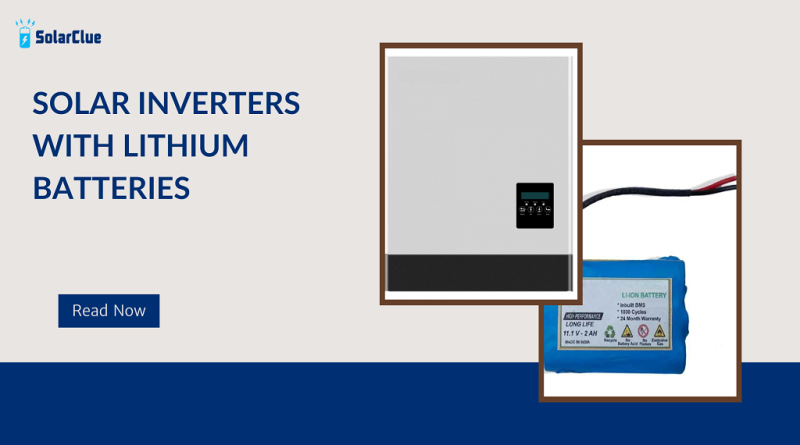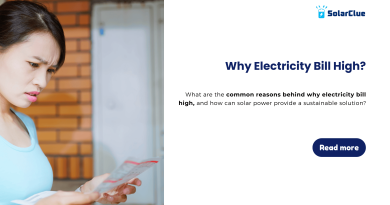Solar Inverters with Lithium Batteries
Hey there! If you’ve been thinking about investing in solar power for your home or business, you might have heard about solar inverters and lithium batteries. It can be a bit overwhelming trying to figure out what these terms mean and how they fit together. Don’t worry—I’m here to break it all down for you in simple terms. By the end of this guide, you’ll have a clear understanding of what a solar inverter with a lithium battery is, how it works, and why it might be a great choice for your energy needs.
Table of Contents
What is a Solar Inverter?
First off, let’s start with the basics. A solar inverter is a device that converts the direct current (DC) electricity generated by your solar panels into alternating current (AC) electricity. AC is the type of electricity that powers most of the appliances and devices in your home. Think of the solar inverter as the middleman that makes sure the electricity your solar panels produce is usable for everyday activities.
There are several types of solar inverters, including string inverters, microinverters, and hybrid inverters. Each type has its own advantages, but for this discussion, we’ll focus on the hybrid inverter because it’s most commonly used with lithium batteries.
What is a Lithium Battery?
Now, let’s talk about lithium batteries. You’ve probably heard of lithium batteries in the context of your smartphone or laptop. They’re popular because they’re lightweight, have a high energy density, and last a long time. When it comes to solar power, lithium batteries are used to store the electricity your solar panels generate.
The main role of a solar battery is to save excess energy produced during the day so that you can use it when the sun isn’t shining. This is particularly useful during nighttime or cloudy days when your solar panels aren’t generating electricity. Lithium batteries are favored in solar systems because they’re efficient, have a longer lifespan compared to traditional lead-acid batteries, and require less maintenance.
How Do Solar Inverters and Lithium Batteries Work Together?
Here’s where it gets interesting. When you install a solar power system with a lithium battery, you typically use a hybrid inverter. This type of inverter not only converts the DC electricity from the solar panels into AC electricity but also manages the flow of electricity between the solar panels, the battery, and your home.
Here’s a simple breakdown of how it works:
1.Solar Panel Energy Generation: During the day, your solar panels generate DC electricity from sunlight.
2.Conversion to AC Electricity: The solar inverter converts this DC electricity into AC electricity so you can use it to power your home.
3.Battery Storage: Any excess AC electricity that you don’t use right away is stored in the lithium battery.
4.Energy Use and Recharging: When your solar panels aren’t producing electricity (e.g., at night), the energy stored in the lithium battery is used to power your home. During the day, if your panels produce more electricity than you need, it can either be stored in the battery or fed back into the grid, depending on your setup.
Why Choose a Solar Inverter with a Lithium Battery?
You might be wondering why you should go for a solar inverter with a lithium battery instead of other options. Let’s explore some of the key benefits:
1.Efficiency: Lithium batteries have a higher energy density and efficiency compared to traditional batteries. This means they can store more energy in a smaller space and release it more efficiently.
2.Longevity: Lithium batteries generally last longer than lead-acid batteries. They can provide reliable performance for up to 10-15 years, whereas lead-acid batteries may need replacement every 5-7 years.
3.Low Maintenance: Lithium batteries require minimal maintenance compared to lead-acid batteries, which need regular checks and water refills.
4.Cost-Effectiveness: While the upfront cost of lithium batteries can be higher, their longer lifespan and efficiency often make them more cost-effective in the long run.
5.Smarter Energy Management: Hybrid inverters that work with lithium batteries provide smart energy management. They can optimize how your energy is used and stored, helping you get the most out of your solar system.
Key Considerations for Choosing a Solar Inverter with a Lithium Battery
When deciding if a solar inverter with a lithium battery is right for you, here are a few things to consider:
- Energy Needs: Assess your energy consumption to determine the size and capacity of the battery you’ll need. A larger battery can store more energy, which is helpful if you have higher energy demands.
- Budget: While lithium batteries are an investment, their efficiency and longevity can lead to savings over time. Compare the costs of different battery types and consider long-term benefits.
- Installation and Compatibility: Ensure that the hybrid inverter and lithium battery you choose are compatible with your existing solar system or the system you plan to install.
Table: Comparing Battery Types
| Feature | Lithium Batteries | Lead-Acid Batteries |
|---|---|---|
| Energy Density | High | Lower |
| Lifespan | 10-15 years | 5-7 years |
| Maintenance | Low | High |
| Efficiency | High | Lower |
| Cost | Higher upfront | Lower upfront |
Conclusion
So, there you have it! A solar inverter with a lithium battery is a powerful combination that offers efficiency, longevity, and smart energy management for your solar power system. If you’re considering making the switch to solar energy, this setup can be a great choice to maximize your investment and ensure you have a reliable power source.
Remember, every home and business has unique energy needs, so it’s important to do a bit of homework and maybe even consult with a professional to determine the best system for you. Whether you’re motivated by reducing your energy bills, increasing your energy independence, or contributing to a greener planet, a solar inverter with a lithium battery is a step in the right direction.
Visit SolarClue® to see the best Solar Inverter. SolarClue® actively sells solar energy products at discounts of up to 50% on its online marketplace.
FAQs
- How long do lithium batteries typically last?
- Lithium batteries usually last between 10 to 15 years, making them a durable choice for solar energy storage.
- Are solar inverters with lithium batteries worth the investment?
- Yes, while they might be more expensive upfront, the efficiency, longevity, and low maintenance of lithium batteries can provide cost savings over time.
- Can I use a solar inverter with a lithium battery for my existing solar system?
- It’s possible, but you need to ensure compatibility. Consult with a solar professional to determine if your current system can integrate with a hybrid inverter and lithium battery.
- What happens if the battery is full?
- If the lithium battery is full, excess energy generated by your solar panels can be either used by your home, stored for future use, or sent back to the grid, depending on your system setup.
- How often should I maintain a lithium battery?
- Lithium batteries require minimal maintenance. Regular checks to ensure the system is functioning properly are usually sufficient.




